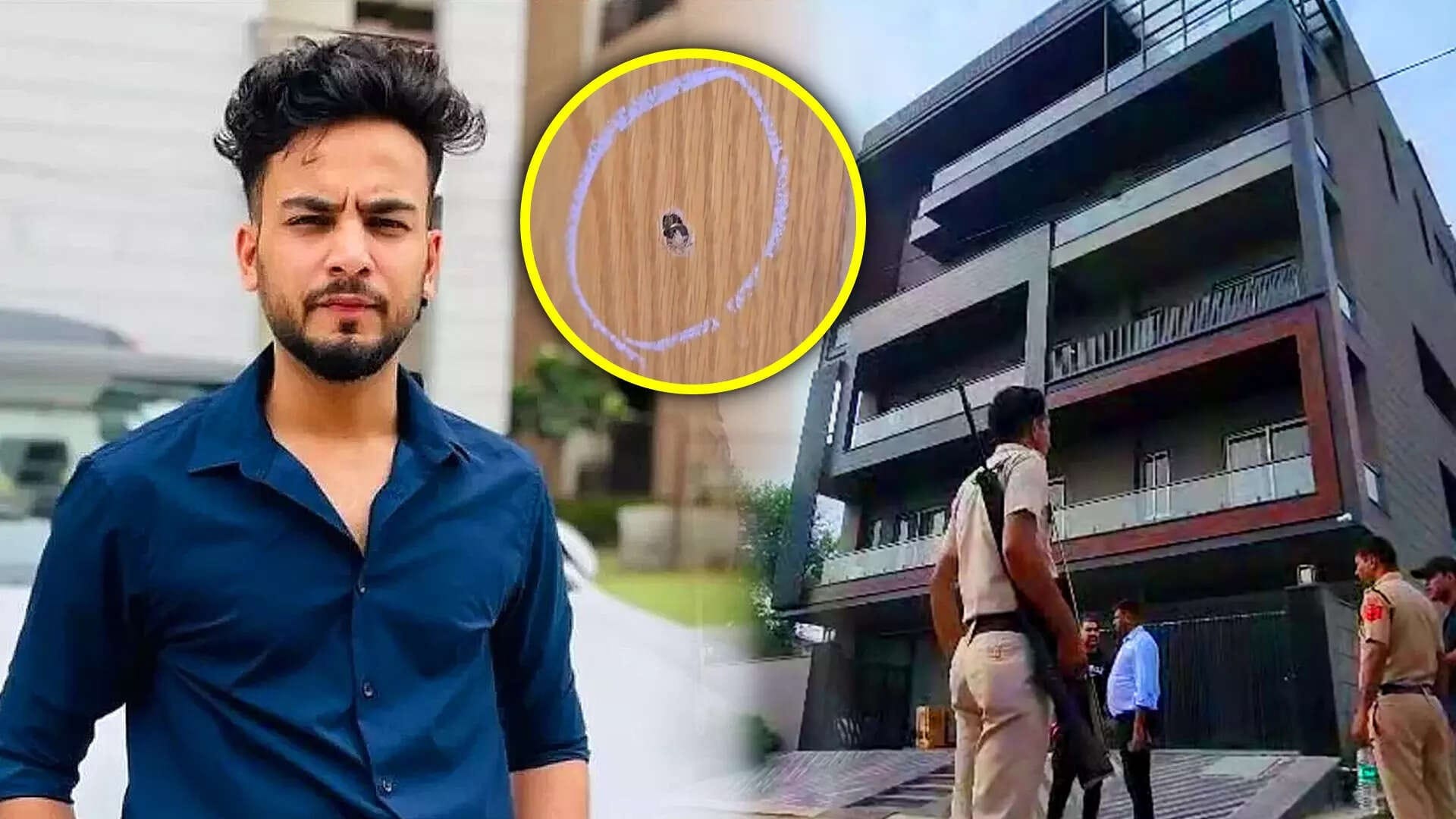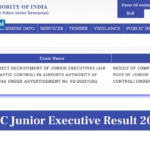In the early hours of August 17, a quiet neighborhood in Gurugram was rocked by an event that could have been lifted from the script of a crime thriller. The residence of Elvish Yadav, one of India’s most popular YouTubers and Bigg Boss OTT 2 winner, became the target of a brazen gun attack. Armed assailants on motorbikes opened fire at his home, releasing an estimated 20 to 30 rounds in a matter of minutes. Although Yadav was not present during the incident, his family and caretakers inside the house endured the terrifying ordeal, escaping without injuries but left deeply shaken.
The attack, caught on CCTV cameras, revealed chilling details of how the masked men executed their plan with ruthless precision. What makes this incident even more alarming is that within hours, a gangster group claimed responsibility, citing Yadav’s alleged promotion of a betting app as the reason behind the assault. The combination of violence, celebrity, and organized crime has since sparked widespread debate about the dangers of online fame, security risks for influencers, and the intersection of digital promotions with real-world threats.
This blog takes a detailed look at the sequence of events, eyewitness testimonies, police investigations, and the broader implications of this attack.
1. The Attack Unfolds
Between 5:30 and 6:00 AM, three men on two motorbikes pulled up outside Elvish Yadav’s home in Gurugram’s Sector 56/57. They were masked, heavily armed, and appeared to have rehearsed their plan. Without hesitation, they opened fire, pumping bullets into the ground floor and first floor of the house. The sound of rapid gunfire pierced the silence of the pre-dawn hours, jolting neighbors from their sleep.
The house’s exterior glass windows shattered instantly, while the walls bore multiple bullet holes. From the footage later recovered, it was clear that the attackers not only fired continuously but even reloaded midway to continue the assault. Some shots were aimed at the house’s main gate and walls, giving the impression that the attackers wanted to send a message rather than cause fatalities.
Inside the house, Yadav’s father, Ram Avtar Yadav, other family members, and a caretaker were present. Miraculously, none of them were harmed, but the psychological toll was undeniable.
2. Eyewitness Account: The Father Speaks
Speaking to the media, Elvish Yadav’s father recounted how the terrifying sounds of gunfire jolted him awake. According to him, nearly 25 to 30 rounds were fired during the incident. His immediate thought was to ensure his family’s safety, but stepping out into the open was impossible with bullets ricocheting around.
Once the gunfire stopped and the attackers fled, he rushed to check on his family and then reviewed the CCTV footage. The visuals left him stunned—three men, two of whom were clearly visible, had carried out the attack with chilling calmness. The masked men appeared unconcerned about being recorded, suggesting either arrogance or confidence that their identities would remain hidden.
3. The Chilling CCTV Revelations
The CCTV footage later released to the authorities paints a disturbing picture of how calculated the assault was. A bike halts in front of the residence, two men get off, and almost immediately, they begin shooting toward the house. At one point, one of the attackers climbs onto the gate and continues firing, almost as if staging a performance of dominance.
The footage shows brief pauses that appear to be moments when the attackers were reloading their weapons. Despite the high number of rounds fired, their actions seemed controlled and intentional, underscoring the organized nature of the attack.
4. Who Claimed Responsibility—and Why?
Soon after the attack, an alleged social media post from the Himanshu Bhau gang surfaced, claiming responsibility for the firing. The post not only boasted about the incident but also issued a warning to others, stating that those promoting betting apps could meet a similar fate.
Elvish Yadav has often been associated with brand promotions, including those of online platforms. The gang’s statement suggested that his association with a betting app was the trigger for their attack. Whether this was a genuine motive or simply an excuse for intimidation remains unclear, but the deliberate targeting of his house indicated that the incident was not random.
Interestingly, bullets struck mainly the floors below where Elvish actually resides, fueling speculation that the attackers intended to scare rather than kill. Still, the audacity of such a violent act in a residential neighborhood raises troubling questions about the reach and brazenness of organized crime.
5. The Aftermath: Police and Public Reactions
The Gurugram Crime Branch quickly took charge of the investigation. Forensic teams collected ballistic evidence, while officers analyzed CCTV footage from the house and surrounding areas to track the attackers’ escape route. A manhunt was launched for the suspects, with multiple teams working to trace the gang’s movements.
Meanwhile, the news spread rapidly across social media, sparking shock and concern. Fans of Elvish Yadav expressed relief that no one was hurt but also voiced fears about the growing risks faced by influencers who share large portions of their lives online. Comments poured in, warning about oversharing personal details, location tags, or brand associations that could attract the wrong kind of attention.
6. Who is Elvish Yadav?
For those unfamiliar, Elvish Yadav—born Siddharth Yadav—is among India’s most followed YouTubers. Since launching his channel in 2016, he has built a massive audience with his comedic sketches, reaction videos, and relatable humor. Over the years, his subscriber base has grown to over 15 million, and his videos collectively have garnered billions of views.
His popularity skyrocketed further after winning Bigg Boss OTT Season 2, cementing his place not just as a digital star but also as a mainstream media personality. He has since appeared in television projects like Laughter Chefs Season 2, making him a household name among youth audiences.
However, Yadav’s journey has not been without controversy. In 2023, he faced a high-profile legal case involving alleged use of snake venom at a rave party. Though he was later granted bail, the incident kept him in the headlines for months.
Given his high visibility, his promotions, endorsements, and personal choices are constantly under scrutiny—making him both influential and vulnerable.
7. Broader Reflections: Fame, Risk, and Responsibility
The attack on Elvish Yadav’s house is more than just a criminal act; it serves as a reminder of the risks that come with public life, especially in the digital age.
Security for Public Figures
Celebrities and influencers often live under the illusion that their fame protects them. In reality, it exposes them to threats ranging from online trolling to physical intimidation.
Digital Footprints and Real-World Risks
Oversharing personal information—whether it’s location, daily routines, or home interiors—creates a roadmap for those with malicious intent. The attack highlights the urgent need for influencers to balance transparency with security.
The Ethics of Online Promotions
While brand collaborations are a major source of income, endorsing controversial or legally questionable platforms like betting apps can backfire. The lines between digital marketing and public accountability are becoming increasingly blurred.
Organized Crime’s Boldness
Perhaps the most disturbing takeaway is the confidence with which a gang carried out such an attack in a prominent neighborhood. Their open admission of responsibility shows both their recklessness and the urgent need for law enforcement to dismantle such networks.
Conclusion
The dawn of August 17 will remain etched in memory as a frightening reminder of the fragile line between digital stardom and real-world danger. While Elvish Yadav’s family escaped unharmed, the incident exposed how quickly fame can become a liability.
For influencers like Yadav, this event is not just about recovering from a traumatic episode but also about rethinking the boundaries of online presence, personal security, and brand choices. For the public and authorities, it is a wake-up call about the need to ensure safety in an age where fame, crime, and digital influence collide.
The shooting at Yadav’s home may have ended without loss of life, but its ripples extend far beyond Gurugram—forcing fans, fellow influencers, and even policymakers to reconsider what it truly means to live under the constant spotlight of social media.










